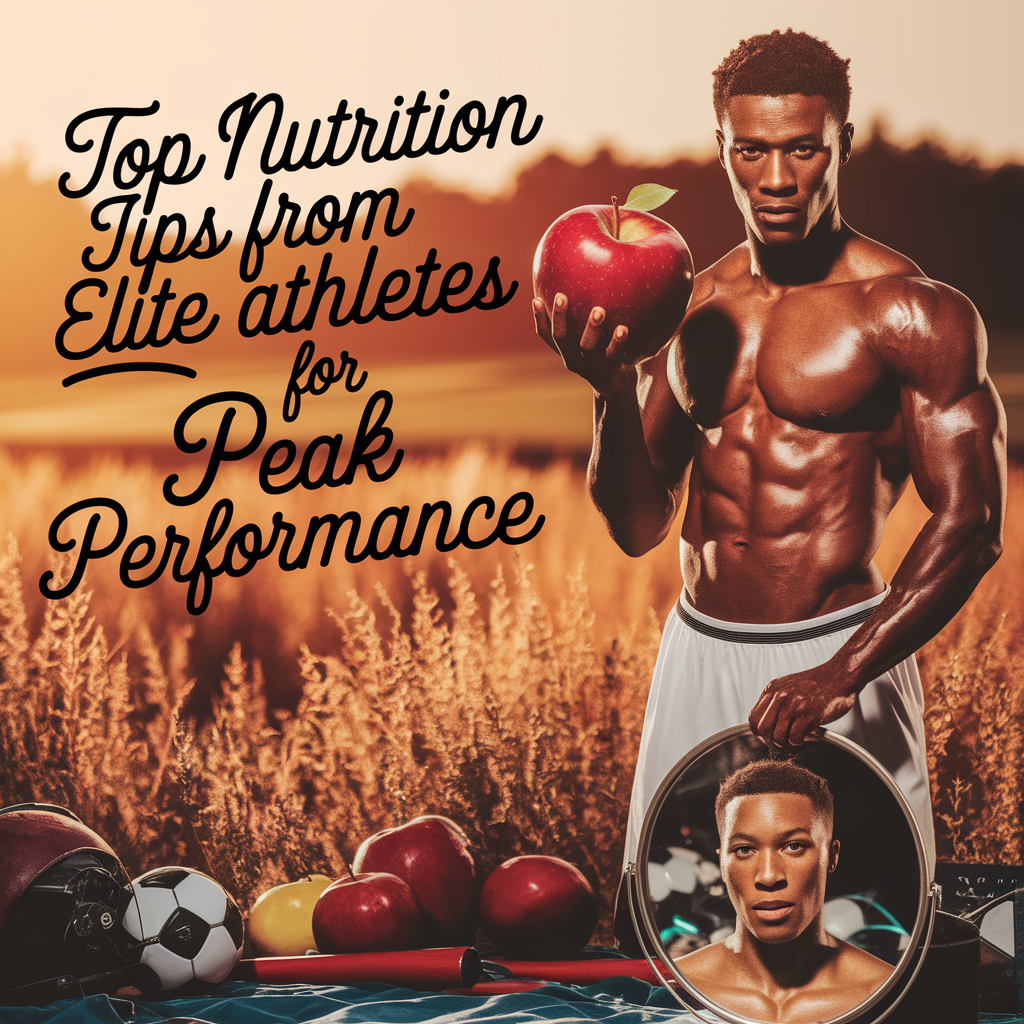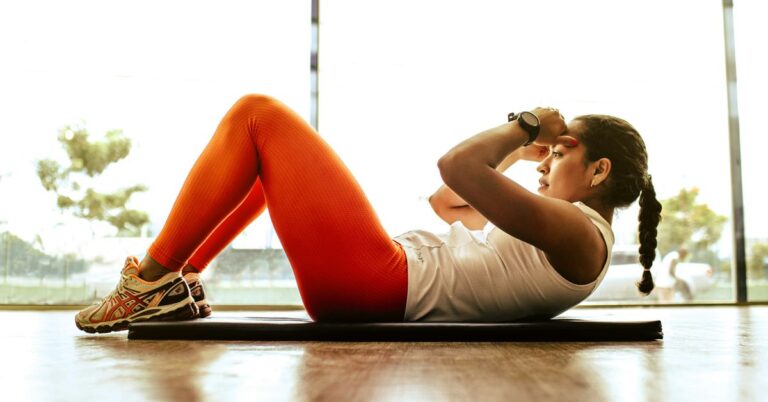Top Nutrition Tips from Elite Athletes for Peak Performance
Have you ever wondered how elite athletes maintain their edge in competition? Beyond sheer talent and rigorous training, the secret often lies in their nutrition. It’s a fascinating blend of science and artistry, and the stakes are incredibly high. After all, fueling a body that is pushed to its limits requires more than just a balanced meal. It’s about precision, timing, and understanding one’s own body. In this article, we’ll explore the top nutrition tips from some of the world’s best athletes, unpacking their insights for achieving peak performance.
The Power of Whole Foods
One common thread among elite athletes is their commitment to whole foods. I remember watching a documentary on a renowned marathon runner who swore by a diet rich in fruits, vegetables, whole grains, and lean proteins. It struck me how simple yet powerful this approach is. Whole foods are packed with essential nutrients that enhance recovery and fuel performance.
For instance, consider the diet of elite swimmer Katie Ledecky. She emphasizes the importance of consuming nutrient-dense foods, saying, “I want to make sure I’m giving my body the best fuel possible.” This philosophy isn’t just about quantity but quality. Whole foods like quinoa, sweet potatoes, and leafy greens help sustain energy levels and improve recovery times.
Timing is Everything
Ever heard the saying, “You are what you eat”? Well, it could be more accurately phrased as, “You are when you eat.” Timing your meals around training sessions can significantly impact performance. Many athletes, including basketball star LeBron James, follow regimented meal schedules. LeBron reportedly eats a well-balanced meal about 3-4 hours before a game to optimize energy levels. But it’s not just about the pre-game meal; post-workout nutrition is equally crucial.
After an intense training session, muscles are craving nutrients. Consuming a blend of protein and carbohydrates shortly after exercise can help repair muscle fibers and replenish glycogen stores. Elite soccer player Cristiano Ronaldo often opts for a protein shake or a meal rich in both categories right after training. His commitment to recovery through nutrition is as strong as his work ethic on the field.
Hydration: The Unsung Hero
It’s easy to overlook hydration amidst all the talk about food, but athletes know that water is their best friend. Olympic champion Usain Bolt once said, “If you don’t hydrate, you can’t perform.” Hydration impacts everything from energy levels to concentration. I recall attending a sports nutrition seminar where a dietitian emphasized that even mild dehydration can diminish performance. It’s a simple yet often underestimated aspect of nutrition.
Many elite athletes, like tennis star Serena Williams, have specific hydration strategies. She keeps track of her fluid intake and incorporates electrolyte-rich beverages during intense training. This isn’t about chugging water aimlessly; it’s about understanding your body’s unique needs and adjusting accordingly.
Embracing Healthy Fats
While fats have often been demonized in popular culture, elite athletes understand their importance in a well-rounded diet. Healthy fats, such as those found in avocados, nuts, and fish, provide the necessary energy for endurance events. Olympic cyclist Mara Abbott swears by the energy-boosting properties of fats. “They keep me fueled during long rides and help with recovery,” she shares.
Moreover, omega-3 fatty acids, prevalent in fish like salmon, can reduce inflammation and promote overall heart health. This is critical for athletes who put their bodies through rigorous training. It’s a reminder that sometimes, the best fuel comes from nature—not just the latest trendy superfood.
Personalization is Key
Every athlete is unique, and their nutritional needs can vary greatly. What works for one may not work for another. This is where personalization comes in. Many top athletes, including NFL quarterback Tom Brady, have tailored their diets to suit their specific needs, often consulting with nutritionists to create a plan that aligns with their goals.
Brady follows a primarily plant-based diet, focusing on whole foods, lean proteins, and staying away from processed foods. He has famously shared, “I think that nutrition is a huge part of the game. You have to be aware of what you put in your body.” This level of awareness allows athletes to optimize their performance while minimizing the risk of injury.
Mindful Eating
In the hustle and bustle of a competitive lifestyle, many athletes advocate for mindful eating. This practice involves paying attention to what you’re eating and savoring each bite. It’s surprisingly easy to rush through meals, especially when you’re on a tight schedule. However, as swimmer Michael Phelps once noted, “Food is fuel. It’s important to enjoy what you eat, but also to be aware of how it affects your performance.”
Mindful eating can lead to better digestion and help athletes recognize when they’re full—an essential skill when managing energy intake. It’s about creating a balance between enjoyment and nutritional needs, allowing athletes to enjoy their meals without guilt.
Supplement Wisely
While whole foods should form the basis of an athlete’s diet, supplements can play a crucial role in filling nutritional gaps. Many elite athletes, like triathlete Mirinda Carfrae, incorporate supplements into their regimes, particularly when it comes to recovery. “I use protein powders and electrolytes to help with muscle repair and hydration,” she explains.
However, the key is to choose supplements wisely. It’s essential to consult with nutritionists and dietitians to select high-quality products that align with individual dietary needs. Not all supplements are created equal, and some may even contain harmful additives. As always, knowledge is power, especially when it comes to what you’re putting into your body.
Balance is Essential
Perhaps the most significant takeaway from elite athletes is the importance of balance. This doesn’t mean strict dieting or depriving oneself of favorite foods. Instead, it’s about finding a harmonious relationship with food that supports performance without sacrificing enjoyment. Olympic gymnast Simone Biles embraces this philosophy, stating, “I love my pizza and cookies as much as I love my greens.”
By allowing for treats while maintaining a foundation of nutritious foods, athletes can sustain their mental and physical health. It’s a reminder that while the pursuit of peak performance is serious, life is too short not to enjoy a slice of cake every now and then (or a whole pizza, depending on the day). After all, balance is the secret ingredient to longevity in any sport.
Real-World Examples: What the Pros Eat
To understand these principles in action, let’s take a look at a day in the life of a few elite athletes and their nutritional choices. These snapshots offer glimpses into how they apply these tips to their training and competition routines.
Day in the Life: Serena Williams
Serena Williams is not just a tennis legend; she’s also a culinary enthusiast. Her breakfast typically includes a smoothie packed with spinach, banana, and protein powder. “I love starting my day with something green,” she says, a testament to her commitment to whole foods.
For lunch, she often opts for a quinoa salad topped with grilled chicken and a variety of colorful vegetables. As for dinner? It’s usually a lean protein with roasted sweet potatoes and asparagus. Williams emphasizes the importance of colorful plates—“If your plate looks good, you’re probably eating well.”
Day in the Life: Tom Brady
Tom Brady’s approach to nutrition is famously meticulous. His day often begins with a unique breakfast of smoothie made from fruits, nuts, and seeds. He swears by this blend for sustained energy, especially before a busy training session.
For lunch, Brady typically enjoys a salad with plenty of greens, topped with fish or chicken, and a healthy fat like avocado. Dinner varies but generally includes a lean protein source with a side of vegetables. “I eat to fuel my body, not just to fill my stomach,” Brady explains, encapsulating his philosophy in a nutshell.
Day in the Life: Michael Phelps
Michael Phelps, the most decorated Olympian of all time, has a legendary eating routine, especially during his training phase when he needed upwards of 12,000 calories a day. Breakfast could consist of three fried eggs, a stack of pancakes, and a hefty serving of oatmeal. “I had to eat a lot to fuel my training,” he recalls.
Lunch didn’t skimp either—a hefty sandwich, pasta, and a side of energy-dense snacks. Dinner rounded out the day with a pasta dish, protein, and vegetables. Phelps’ diet is a reminder of the massive caloric needs of elite athletes, especially those in endurance sports.
Common Misconceptions about Athlete Nutrition
As we delve deeper into the realm of sports nutrition, it’s crucial to address some common misconceptions that often circulate. These myths can lead to confusion, especially for aspiring athletes and fitness enthusiasts.
Myth 1: Carbs are the Enemy
One of the most prevalent myths is that carbohydrates are detrimental to performance. In reality, carbohydrates are the primary energy source for athletes. Whether it’s sprinting, swimming, or lifting weights, carbs provide the necessary fuel. As sprinter Allyson Felix puts it, “Carbs are my best friend on race day.”
Myth 2: Supplements Replace Meals
Another misconception is that supplements can replace whole meals. While they can be beneficial, they should complement a diet rich in whole foods, not substitute for them. Nutritionist and former athlete Kelly Starrett emphasizes that “real food will always be superior to a pill.”
Myth 3: All Fats are Bad
As discussed earlier, not all fats are created equal. Healthy fats are essential for hormone production and overall health. The idea that all fats lead to weight gain is simply outdated. It’s about choosing the right types of fats, as evidenced by the diets of many elite athletes.
Final Thoughts: Your Path to Peak Performance
In the end, the journey to peak performance through nutrition is as much about understanding your body as it is about making informed choices. Elite athletes share invaluable tips that can help anyone, whether you’re training for your first marathon or simply looking to enhance your fitness routine.
From embracing whole foods and optimizing meal timing to staying hydrated and enjoying the occasional treat, there’s no one-size-fits-all approach. It’s about finding what works for you, experimenting, and listening to your body’s cues.
As you embark on your nutritional journey, remember that it’s not just about the numbers on the scale or the calories consumed. It’s about fueling your passion, supporting your goals, and enjoying the process along the way. After all, even the best athletes were once novices—and we all have to start somewhere.
So, whether you’re hitting the gym or lounging on your couch (hey, rest days are important too), keep these tips in mind. Eat well, hydrate often, and embrace the balance that will help you achieve your personal best. After all, nutrition isn’t just a means to an end; it’s a vital part of the journey itself.









